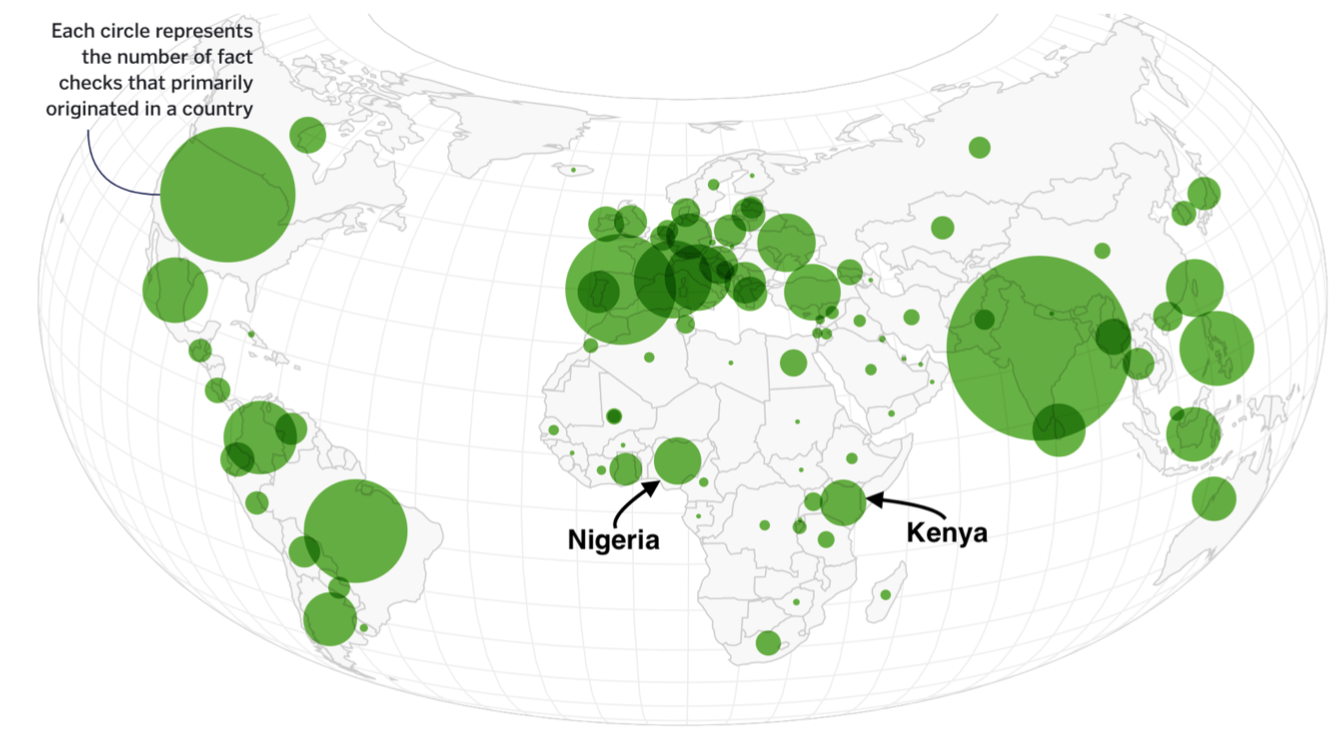online Misinformation
“Battling the coronavirus infodemic among social media users in kenya and nigeria” With M. Offer-Westort & S. Athey. nature human behavior (2024).
How can we induce social media users to be discerning when sharing information during a pandemic? An experiment on Facebook Messenger with users from Kenya (n = 7,498) and Nigeria (n = 7,794) tested interventions designed to decrease intentions to share COVID-19 misinformation without decreasing intentions to share factual posts. The initial stage of the study incorporated: (1) a factorial design with 40 intervention combinations; and (2) a contextual adaptive design, increasing the probability of assignment to treatments that worked better for previous subjects with similar characteristics. The second stage evaluated the best-performing treatments and a targeted treatment assignment policy estimated from the data. We precisely estimate null effects from warning flags and related article suggestions, tactics used by social media platforms. However, nudges to consider the accuracy of information reduced misinformation sharing relative to control by 4.9% (estimate = −2.3 percentage points, 95% CI = [−4.2, −0.35]). Such low-cost scalable interventions may improve the quality of information circulating online.
“Happiness and surprise are associated with worse truth discernment of COVID-19 headlines among social media users in Nigeria” with B. Bago, A. Berinsky & D. Rand. Harvard kennedy school misinformation review (2021). [preanalysis, Data]
Do emotions we experience after reading headlines help us discern true from false information or cloud our judgement? Understanding whether emotions are associated with distinguishing truth from fiction and sharing information has implications for interventions designed to curb the spread of misinformation. Among 1,341 Facebook users in Nigeria, we find that emotions—specifically happiness and surprise—are associated with greater belief in and sharing of false, relative to true, COVID-19 headlines. Respondents who are older are more reflective, and do not support the ruling party are better at discerning true from false COVID-19 information.
“emotion may PREDICT susceptibility to fake news but emotion regulation does not seem to help” with B. Bago, A. Berinsky & D. Rand. Cognition and emotion (2022).
Misinformation is a serious concern for societies across the globe. To design effective interventions to combat the belief in and spread of misinformation, we must understand which psychological processes influence susceptibility to misinformation. This paper tests the widely assumed -- but largely untested -- claim that people are worse at identifying true versus false headlines when the headlines are emotionally provocative. Consistent with this proposal, we find correlational evidence that overall emotional response at the headline level is associated with diminished truth discernment, except for experienced anger which is associated with increased truth discernment. A second set of studies tests a popular emotion regulation intervention asking participants to apply either emotional suppression or emotion reappraisal techniques when considering the veracity of several headlines. In contrast to the correlation results, we find no evidence that emotion regulation helps people distinguish false from true news headlines.


